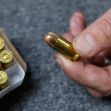A group of gun-owning plaintiffs filed suit to challenge the constitutionality of several California laws and practices that require the State’s Department of Justice to gather and maintain records and personal information about gun and ammunition sellers and their potential transferees. In an effort to reduce gun violence, this information has been shared with a University of California research center since 2016. The plaintiffs claimed the laws and practices violated their privacy rights and asked for an injunction, which was granted by the trial court. The Fourth District Court of Appeal has now reversed the trial court’s order.
Since California lost 38,576 individuals to gun violence from 2002 to 2013, it is no wonder that California has long been gathering data about gun transfers. In fact, dealers have been required to retain records since 1917. That year, a statute was enacted that required “every person in the business of selling, leasing, or otherwise transferring a pistol, revolver or other firearms of a size capable of being concealed…to keep a register” with extensive information about all gun sales.
The statute remains in effect today but has been expanded to include all firearms. It also requires the digital transfer of gathered information to the California Department of Justice (DOJ), where background checks can be conducted and the gathered information can be included in a firearm registration database. Although the specifics of what must be reported have changed, the reason for the records has remained the same – “to assist in the investigation of crime, the prosecution of civil actions…, the arrest and prosecution of criminals and the recovery of lost, stolen, or found property.”
A similar law about ammunition transfers was enacted in 2009, and in 2016, Californians approved Proposition 63, the “Safety for All Act,” which “increased oversight and enhanced record-keeping.” This law also created the DOJ’s “Ammunition Purchase Records File (APRF)” which has shared data with researchers at the University of California, Davis (UC Davis) since approximately 1989 in order to ”study firearm violence.” The California Legislature formalized this arrangement by creating the Firearm Violence Research Center at the University of California in 2016.
The sharing arrangement, however, raised concerns about privacy. After the Attorney General announced he was “considering a rule change based on privacy concerns that would restrict the release of certain personal identifying information to the Center,” the Legislature specified the types of research materials that could be shared with the UC in Assembly Bill 173. For example, material identifying individuals could only be provided for research or statistical activities, and was not to be used for any other purposes.
Lead plaintiff Ashleymarie Barb, identified as “an individual gun owner,” and several foundations and Political Action Committees including the Firearms Policy Coalition and the San Diego, Orange County, and Inland Empire Gun Owners PACs filed a complaint against California Attorney General Rob Bonta. Their complaint challenged the constitutionality of the amendments in Assembly Bill 173.
They claimed its “disclosure of personal identifying information violated their rights to privacy under the California Constitution,” that it “improperly amended Proposition 63,” and that it violated the Second Amendment of the U.S. Constitution. The plaintiffs requested an injunction that would prevent the DOJ from “sharing personal identifying information” it collected. They also asked that all personal information that had previously been shared with the UC be retrieved. Bonta filed a demurrer “asserting that all three of Plaintiffs’ claims fail as a matter of law.”
The Second Amendment claims were stayed and Superior Court Judge Katherine A. Bacal of San Diego County denied plaintiffs’ claims under the California Constitution but sustained their cause of action that claimed Assembly Bill 173 improperly amended a voter initiative. She then granted the plaintiffs’ request for an injunction based on the unlawful amendment. Bacal said, “The California Department of Justice is enjoined from transferring to researchers personal identifying information collected in the Automated Firearms System… and personal identifying information collected in the Ammunition Purchase Records File…” Bonta appealed.
A unanimous three-panel from Division One of California’s Fourth District Court of Appeal reversed Bacal’s preliminary injunction order on November 17. In an unpublished opinion authored by Justice Julia C. Kelety, the court explained the factors that determine whether preliminary injunctions should be granted. She said two “interrelated factors” must be considered: the likelihood that plaintiff would prevail and the “relative balance of harms that is likely to result from the granting or denial of interim injunctive relief.” To make this determination, she examined the injunction in light of the right to privacy in the California Constitution.
She concluded that “Plaintiffs cannot establish a likelihood of success on the merits as a matter of law, and the preliminary injunction must be reversed.” She also distinguished the standard for overcoming a demurrer from the standard for obtaining a preliminary injunction.” She concluded that Bacal’s grant of a preliminary injunction was an “abuse of discretion.” Kelety emphasized that there was “a countervailing interest justifying any invasion of privacy” which was the “empirical research supporting informed policymaking aimed at reducing and preventing firearm violence,” research that was approved by voters when they passed Proposition 63.
To support the appellate court ruling, several experts were quoted, all of whom stressed the importance of the UC-conducted research. Kelety concluded, “In sum, the Attorney General presented evidence in the trial court sufficient to establish a countervailing interest that outweighed an associated invasion of privacy and Plaintiffs did not provide evidence or argument sufficient to establish the existence of a feasibly and effective alternative.” She said that because the trial court declined to conduct a proper analysis, it abused its discretion.
The research into gun violence continues. Sadly, it seems, the gun violence behind the research continues as well.






